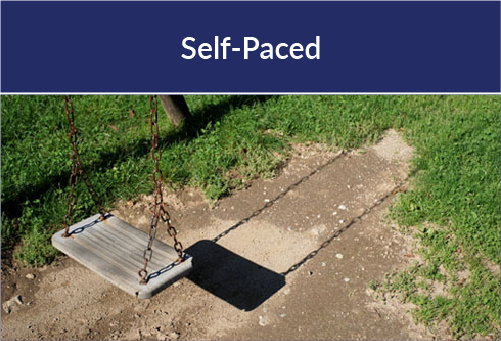


Test your community’s response in conducting an initial investigation, search and canvass activities for a missing or abducted child scenario occurring on tribal lands. Employ strategies and responses in mitigating and resolving the emergency. Participate in a multi-disciplinary, multi-jurisdictional tabletop exercise, to build cohesiveness with tribal, state, local and federal partners when responding to an emergency.

AMBER Alerts are activated in the most serious child-abduction cases. The goal of an AMBER Alert is to instantly galvanize the community to assist in the search for and safe recovery of a missing child. These alerts are broadcast through radio, TV, road signs, cellphones, and other data-enabled devices. During this webinar, tribal community members will understand law enforcement's response to missing and abducted children, and when an AMBER Alert is an effective tool. Recognize the importance of bridging the gap between law enforcement and the community. Explain and understand how community members can assist during and before a missing or abducted child situation.

AMBER Alerts are activated in the most serious child-abduction cases. The goal of an AMBER Alert is to instantly galvanize the community to assist in the search for and safe recovery of a missing child. These alerts are broadcast through radio, TV, road signs, cellphones, and other data-enabled devices. During this webinar, law enforcement will understand the importance of what criteria needs to be met to request an AMBER Alert activation. Demonstrate and recognize the importance of having a plan or policy in place. Explain how critical it is to train and prepare in advance of an AMBER Alert activation to be able to respond quickly, as time is of the essence in every child abduction case.

Learn about the mission of the Ashlynne Mike AMBER Alert in Indian Country Act of 2018 and the ongoing efforts of the AMBER Alert Training and Technical Assistance Program (AATTAP) to support this Act.

Join us to learn the concept of a Child Abduction Response Team (CART) in Indian Country. Topics discussed will include the importance to develop a prepared response to missing, endangered or abducted children within Indian Country. The goal is to provide a level of understanding to the overall CART concept for implementation into tribal communities and Indian Country.

This webinar is designed to provide participants with a comprehensive understanding of the Child Abduction Response Team (CART) framework, specifically tailored for Tribal Communities. Through a series of interactive sessions, participants will gain an in-depth understanding of the essential components that constitute a successful Child Abduction Response Team. Join us to learn about the unique considerations and challenges involved in implementing a CART within a Tribal Community. Discuss cultural sensitivities, jurisdictional complexities, and resource limitations that may impact the establishment and operation of CART in these settings. By the end of this webinar, participants will be equipped with the knowledge and skills necessary to begin the process of developing a CART in their Tribal Community, ensuring the safety and well-being of their children.

This first course in the Missing Child Investigations in Indian Country (MCI-IC) online training series introduces the series, and is specifically designed to support understanding of the six key challenges law enforcement officers and supporting agencies working in or with Indian Country communities often face when a child goes missing, including: Not having a clearly defined starting point for the investigation; proper identification and utilization of resources; increasing risk with the passage of time; the emotionally charged nature of the case; addressing and managing the media; and jurisdictional, geographic and cultural dynamics of investigative work in Indian Country.

The tenth course in the Missing Child Investigations in Indian Country (MCI-IC) online training series is designed to help law enforcement understand and apply proper methods and techniques in performing general area searches, forensic searches, and roadblock canvasses in missing child investigations in Indian Country. The general area search, a physical search for the child, and the forensic search, a formal collection of physical evidence, are core investigative processes in missing child investigations, especially in child abduction cases. The roadblock canvass is frequently conducted in conjunction with the general area search. This course will focus on the procedures and coordination of each of these investigative processes.

The eleventh course of the Missing Child Investigations in Indian Country (MCI-IC) online series explores the neighborhood investigation; a comprehensive, in-depth effort to locate the child and gather information about individuals present near key locations when the child went missing. Building on the preliminary canvass introduced in Course 5, this phase involves detailed interviews and exhaustive searches. Research consistently highlights its critical role in child abduction cases.

The twelfth course in the Missing Child Investigations in Indian Country (MCI-IC) online training series covers the exchange of information between law enforcement and the victim child’s tribal community that is facilitated by three distinct but interconnected processes—victim services, family liaison and media considerations or strategies. This course will discuss how these processes and the roles of individuals associated with them can enhance the missing child investigation by helping to generate leads through effective exchange of information with victim families and the public.
